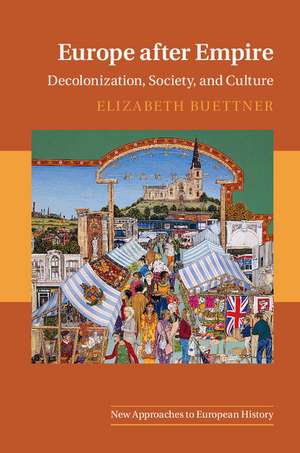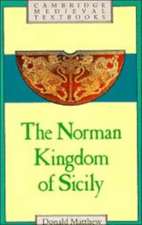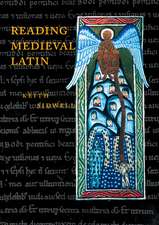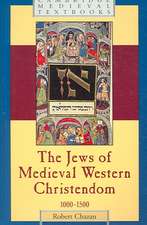Europe after Empire: Decolonization, Society, and Culture: New Approaches to European History, cartea 51
Autor Elizabeth Buettneren Limba Engleză Paperback – 23 mar 2016
| Toate formatele și edițiile | Preț | Express |
|---|---|---|
| Paperback (1) | 245.24 lei 3-5 săpt. | |
| Cambridge University Press – 23 mar 2016 | 245.24 lei 3-5 săpt. | |
| Hardback (1) | 769.77 lei 6-8 săpt. | |
| Cambridge University Press – 23 mar 2016 | 769.77 lei 6-8 săpt. |
Din seria New Approaches to European History
-
 Preț: 185.12 lei
Preț: 185.12 lei -
 Preț: 223.66 lei
Preț: 223.66 lei -
 Preț: 299.44 lei
Preț: 299.44 lei -
 Preț: 236.92 lei
Preț: 236.92 lei -
 Preț: 237.15 lei
Preț: 237.15 lei - 8%
 Preț: 482.17 lei
Preț: 482.17 lei - 8%
 Preț: 441.68 lei
Preț: 441.68 lei -
 Preț: 200.13 lei
Preț: 200.13 lei -
 Preț: 192.42 lei
Preț: 192.42 lei -
 Preț: 227.49 lei
Preț: 227.49 lei -
 Preț: 137.74 lei
Preț: 137.74 lei - 9%
 Preț: 594.01 lei
Preț: 594.01 lei -
 Preț: 209.63 lei
Preț: 209.63 lei -
 Preț: 186.07 lei
Preț: 186.07 lei -
 Preț: 185.12 lei
Preț: 185.12 lei -
 Preț: 178.30 lei
Preț: 178.30 lei -
 Preț: 176.86 lei
Preț: 176.86 lei -
 Preț: 295.08 lei
Preț: 295.08 lei -
 Preț: 242.54 lei
Preț: 242.54 lei - 19%
 Preț: 496.73 lei
Preț: 496.73 lei -
 Preț: 241.62 lei
Preț: 241.62 lei -
 Preț: 292.19 lei
Preț: 292.19 lei -
 Preț: 278.72 lei
Preț: 278.72 lei -
 Preț: 359.90 lei
Preț: 359.90 lei -
 Preț: 338.22 lei
Preț: 338.22 lei -
 Preț: 311.99 lei
Preț: 311.99 lei -
 Preț: 315.04 lei
Preț: 315.04 lei -
 Preț: 273.89 lei
Preț: 273.89 lei -
 Preț: 300.79 lei
Preț: 300.79 lei -
 Preț: 319.88 lei
Preț: 319.88 lei -
 Preț: 288.37 lei
Preț: 288.37 lei -
 Preț: 304.23 lei
Preț: 304.23 lei
Preț: 245.24 lei
Nou
Puncte Express: 368
Preț estimativ în valută:
46.93€ • 48.99$ • 38.84£
46.93€ • 48.99$ • 38.84£
Carte disponibilă
Livrare economică 14-28 martie
Preluare comenzi: 021 569.72.76
Specificații
ISBN-13: 9780521131889
ISBN-10: 052113188X
Pagini: 553
Ilustrații: 33 b/w illus.
Dimensiuni: 152 x 227 x 24 mm
Greutate: 0.89 kg
Editura: Cambridge University Press
Colecția Cambridge University Press
Seria New Approaches to European History
Locul publicării:Cambridge, United Kingdom
ISBN-10: 052113188X
Pagini: 553
Ilustrații: 33 b/w illus.
Dimensiuni: 152 x 227 x 24 mm
Greutate: 0.89 kg
Editura: Cambridge University Press
Colecția Cambridge University Press
Seria New Approaches to European History
Locul publicării:Cambridge, United Kingdom
Cuprins
Introduction; Part I. Decolonization for Colonizers: Europe's Transition to the Postcolonial Era: 1. Myths of continuity and European exceptionalism: Britain, decolonization, and the Commonwealth family ideal; 2. Occupation, resistance, and liberation: the road to Dutch decolonization; 3. Soldiering on in the shadow of war: decolonizing la plus grande France; 4. Long live the king?: Belgium, the monarchy, and the Congo between the Second World War and the decolonization years; 5. From Rose-Coloured Map to Carnation Revolution: Portugal's overseas amputations; Part II. Migrations and Multiculturalisms in Postcolonial Europe; 6. Ending empires, coming home: the ghost worlds of European colonial repatriates; 7. Ethnic minority immigration from empires lost; 8. Reconfiguring nations: identities, belonging, and multiculturalism in the wake of postcolonial migration; Part III. Memories, Legacies, and Further Directions: 9. Remembering and forgetting empires; Epilogue: thoughts toward new histories of contemporary Europe; Further reading; Index.
Recenzii
'Trying to understand how 'the empire came home' has inspired some of the most important historiography of twentieth-century Europe during the past two decades, bringing colonialism's legacies under scrutiny in challenging new ways. With an approach both comparative and transnational, Elizabeth Buettner builds on this new work to craft a vividly insightful account of decolonization and its effects, one that deals not just with Britain and France, but with the Netherlands, Belgium and Portugal too.' Geoff Eley, University of Michigan
'This pioneering study plumbs the post-decolonization histories of multiple European societies - the Netherlands, Belgium, and Portugal alongside Britain and France - and brings them into dynamic conversation. It is a continental history, necessary reading for anyone seeking to understand how the long history of overseas empires still fashions European lives and understandings today.' Todd Shepard, Johns Hopkins University
'A book that truly demonstrates the global impacts of decolonization, Europe after Empire blends comparative and transnational analyses to illustrate how Western European societies were reimagined and remade as imperial bonds were broken. The breadth of coverage is immense, the insights are invaluable.' Martin Thomas, University of Exeter
'Europe after Empire lives up to its promise: acknowledging the ongoing present of the imperial past in Europe, it provides an important contribution to a 'new imperial history' that is sensitive to postcolonial critique on the implicit Eurocentrism in many historiographies of colonialism and decolonization. After the first two comparative parts on decolonization, immigration and multicultural society in Britain, the Netherlands, France, Belgium and Portugal, Part III urges us to reflect on European memories of empire beyond national frames.' Susan Legêne, VU University Amsterdam
'This new analytic recasting of post-imperial Europe clearly illustrates a significant scholarly shift from using a single nation-state as mirror … The volume is well illustrated and footnoted, and has a current bibliography … Summing Up: Recommended. All academic and public libraries.' M. S. Miller, Choice
'[a] thoughtful, well-organized, scrupulously researched volume. The historical narratives are complemented by strong cultural, social and political analyses. … Anyone embarking on the study of decolonization - widely understood, as in this book - will be grateful to Buettner for providing so comprehensive and perceptive an overview, the best currently available.' The Times Literary Supplement
'This pioneering study plumbs the post-decolonization histories of multiple European societies - the Netherlands, Belgium, and Portugal alongside Britain and France - and brings them into dynamic conversation. It is a continental history, necessary reading for anyone seeking to understand how the long history of overseas empires still fashions European lives and understandings today.' Todd Shepard, Johns Hopkins University
'A book that truly demonstrates the global impacts of decolonization, Europe after Empire blends comparative and transnational analyses to illustrate how Western European societies were reimagined and remade as imperial bonds were broken. The breadth of coverage is immense, the insights are invaluable.' Martin Thomas, University of Exeter
'Europe after Empire lives up to its promise: acknowledging the ongoing present of the imperial past in Europe, it provides an important contribution to a 'new imperial history' that is sensitive to postcolonial critique on the implicit Eurocentrism in many historiographies of colonialism and decolonization. After the first two comparative parts on decolonization, immigration and multicultural society in Britain, the Netherlands, France, Belgium and Portugal, Part III urges us to reflect on European memories of empire beyond national frames.' Susan Legêne, VU University Amsterdam
'This new analytic recasting of post-imperial Europe clearly illustrates a significant scholarly shift from using a single nation-state as mirror … The volume is well illustrated and footnoted, and has a current bibliography … Summing Up: Recommended. All academic and public libraries.' M. S. Miller, Choice
'[a] thoughtful, well-organized, scrupulously researched volume. The historical narratives are complemented by strong cultural, social and political analyses. … Anyone embarking on the study of decolonization - widely understood, as in this book - will be grateful to Buettner for providing so comprehensive and perceptive an overview, the best currently available.' The Times Literary Supplement
Descriere
A pioneering comparative history of British, French, Dutch, Belgian, and Portuguese decolonization from the formal ending of empires to the postcolonial European present. Elizabeth Buettner charts the social, cultural, and political impacts of European decolonization, including postcolonial migration, multicultural societies, and divided memories of empires past.






























